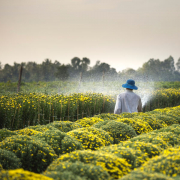Archive for month: March, 2021
NEWS | CRITICAL SKILLS LIST – WHAT SOUTH AFRICANS NEED TO KNOW
/in Archived, News /by xp-adminThe disdain stems from the growing unemployment rate, the rise of illegal immigrants and a lack of understanding from South Africans as to what the Critical Skills list is and what the need for it is.
We hope to clarify the above and in turn bring understanding and reassurance to South Africans who find themselves questioning the reasoning and credibility behind this list.
What is the Critical Skills List
After consultations with the Department of Higher Education and Training, the Department of Labour, The Department of Trade and Industry and input from businesses in all industries across South Africa, the Department of Home Affairs issues a list of skills it deems to be critically needed in South Africa.
The previous list which was last issued in 2014 has been reviewed and government have now released a new draft list containing a list of skills South Africa needs to attract, in order to grow our economy and in turn create more job opportunities for all South Africans.
It is important to note that the is a draft list inviting public commentary to address any shortfalls of the list to ensure a well balanced final list is gazetted that fulfils the purpose of attracting foreign skills.
Supply vs Demand
Contrary to the thinking of many, the list does not represent Governments version of skills that no South African is able to fulfil.
“The list instead addresses the shortage in the quantity of qualified resources available currently or expected in future (based on the National Development Plan) to fulfil the positions in relation to the current industry demand for the skills. The fact that our economy’s demand for skills outweighs the quantity we have available is encouraging and means that our economy is growing.” explains Jo-lene Da Silva-Vergottini, Immigration Specialist at Xpatweb.
International Demand
Jo-lene goes on to explain, “It is important to note that South Africa is not the only country with a Critical Skills list or shortage in terms of the quantity of skills needed for their growing economy. Many countries around the world possess a list of skills they deem critical and use the list to attract the skills they need to supplement their local resources, these countries include USA, Canada, Australia and Britain, to name a few.”
Britain for example, recently announced favourable visa conditions for much needed health care workers. This does not mean that Britain does not have any qualified health care workers, but rather that their demand for these resources currently outweighs supply.
South Africa has a similar looming crisis with more than 48% of qualified nurses currently in employment reaching retirement age in the next 15 years according to the South Africa Nursing Council. Looking at the annual intake of nurses and the growing trend of nurses and care worker leaving SA to work abroad, South Africa is not developing and retaining enough nurses to ensure we meet the demands of the industry.
What can South Africans do
The new draft Critical Skills list has been issued and the Minister of Home Affairs is calling on all South Africans to participate in the process and submit written comments by 31 March 2021.
Jo-lene concludes “Over and above ensuring your voice is heard, newly matriculated South Africans and South Africans still deciding in which industry they would like to further their studies, should be encouraged to look through the Critical Skills list and choose their path based on skills that are so desperately needed in South Africa. This ensures we build a skills base in the right areas and also that matriculants study in an area in which they will be able to secure employment after their studies.”
In closing, it is vitally important for all South Africans to understand what skills our country needs and how we as South Africans can contribute in a productive way.
AUTHOR 
Jo-lene Da Silva-Vergottini
Immigration Consultant
NEWS | CORPORATE VISAS CAN FIX SEASONAL FARM LABOUR SHORTAGES
/in Archived, News /by xp-admin“It is crucial that farmers who want to apply to the Department of Home Affairs (“DHA”) and the Department of Labour (“DOL”) for a Corporate Visa, can prove that they first sought out unemployed South Africans for the positions”, Marisa Jacobs, Director of Xpatweb advises.
Bulk approval to import skills
The DHA’s Corporate Visa allows farmers to obtain bulk approval for groups of between 50 and 1,000 labourers or more to enter and work in South Africa for a period of up to three years at a time after which a renewal is required. Once this visa has been approved, workers are issued with a certificate which allows them, on presentation, to have their passports endorsed with the relevant corporate visa.
“The farmer may only need the workers on a seasonal basis but the three year validity of this visa ensures that they do not have to reapply every season when the labourers are needed on the farm,” Jacobs explains.
The visa is particularly useful for the agricultural sector, which often struggle to find local labour to fill temporary posts as seasonal workers, as many people may take the job for a month or two but then resign for personal reasons, or at times because they have found a more permanent position elsewhere.
Neighbouring country’s labour pool
There are generally large communities of people living outside towns in neighbouring countries who are seeking seasonal jobs on farms. This visa allows the farmer to apply and bring them to SA to fill specific posts of pickers, packers and sorters, for example, using a single bulk visa application. The labourers themselves do not have to worry about the application as it is entirely handled by the farms’ human resources department, which will usually outsource the process to a reputable immigration specialist with experience in the process.
Farmers have historically handled the visa application in-house, but in recent years many have opted to outsource it to a specialist to ensure a smooth and swift process.
“It is a cumbersome process, so farmers prefer to focus on their core business and to leave a specialist to handle the paperwork, which involves liaising with both the Department of Labour and the Department of Home Affairs,” Jacobs says.
As part of the process, the DOL will inspect the farm to ensure that the business is compliant with labour laws and minimum wage requirements, to ensure there is no exploitation or attempt to attract cheap labour. The DOL will also require evidence from the farmer that there has been an attempt to seek out and employ local labourers, before turning to neighbouring countries as well as an ongoing attempt to increase their local labour count.
Apply now to avoid delays
The Corporate Visa takes as long as four to six months to obtain, from initial submission of the paper work to approval. It is advisable to consult an immigration specialist in advance to obtain the best advice and practical assistance regarding filing an application.
“This is a very attractive visa because it helps farmers solve their labour shortage challenges with one application and it provides peace of mind that they are compliant for at least three years. The visa is renewable after three years so if the farm has grown, and there is still no local labour available, or the business has expanded and still needs the workers to complement its local workforce, the departments will assess the situation and renew the visa,” Jacobs concludes.
AUTHOR 
Marisa Jacobs
Director
FIND US
Johannesburg
17 Eaton Avenue,
Bryanston, Johannesburg,
Gauteng, 2191
South Africa
George
55 York Street
Dormehls Drift
George, 6529
South Africa
CONTACT US
Telephone:
South Africa: 011 467 0810
Postal:
PO BOX 35046
Northcliff
2115
IN THE NEWS
- Another Positive Move To Attract More Tourists To SA
- Bringing in the Bomb Squad at Home Affairs
- How Home Affairs’ Immigration Reforms Could Drive SA’s Growth in 2025
- Phindiwe Mbhele on Remote Work Visa: Splendid Cape Town is wooing more and more digital nomads
- Cape Town Shines, and So Does South Africa’s New Critical Skills Visa Overhaul



